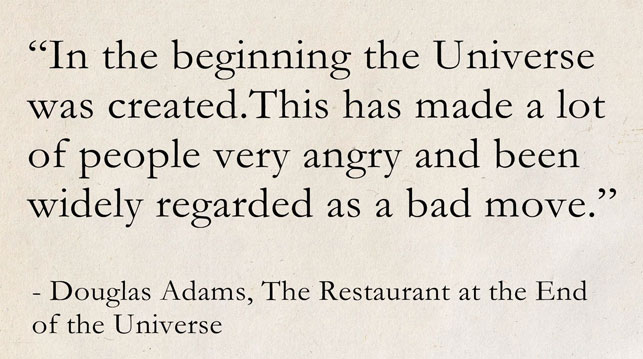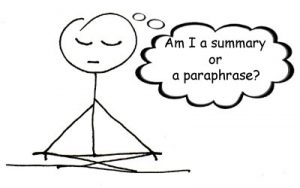
Look up “paraphrase,” “summary,” and “précis” in the dictionary, and you’re going to find a lot of overlapping ideas, but the uses of these terms (especially in academic writing) have quite well-defined boundaries.
All these terms deal with the idea that you’re reading something someone else wrote and then putting it in different terms while maintaining the meaning. But these similarities come to an end when you consider the different purposes for these tasks.
Let’s Start with the Paraphrase
A paraphrase is specifically different from a quote. To qualify, it must relay all the same information but in different words.
Not seeing how this is different from the others? Think about the purpose. A paraphrase reveals that you know what is being said and can rephrase it in words of your own choosing. You are proving you “get it.”
Get a free sample proofread and edit for your document.
Two professional proofreaders will proofread and edit your document.
A paraphrase thus has no space limits. Indeed, a paraphrase might be much longer than the original text. One paraphrase of, “To be, or not to be / That is the question,” is: “I am asking myself whether I should decide to go on living, or kill myself, and this may be ‘the question’ in terms of all existence. Should humanity bother to keep on going or just snuff it?”
A paraphrase may also be much shorter. One paraphrase of:
Now therefore, while the youthful hue
Sits on thy skin like morning dew,
And while thy willing soul transpires
At every pore with instant fires,
Now let us sport us while we may,
And now, like amorous birds of prey,
Rather at once our time devour
Than languish in his slow-chapped power,
would be: “Hey, let’s have sex before we get all old and stuff.”
Of course, that second paraphrase might not get you a good grade in English Lit.
A Summary Is a Whole Different Deal
A summary is generally understood to be of something long enough to benefit from a summary. There’s no real summary for, “I am going to the store.” (A paraphrase would be, “The speaker is traveling to the shop.”) A summary is understood to be smaller than the original and may use some of the same words.
A summary also does not have to be complete. A summary of MLK’s “I Have a Dream” speech can just be, “White and Black people should try to get along better.” A paraphrase of the speech would have to cover all the bases.
 Most typically, in providing a summary, we are shooting for “the gist” of the work. We have to make judgment calls about what’s important and what can go. It’s the word version of those “clean up your house” shows on TV. What do we keep, and what do we toss? Then we organize what we keep so it makes sense.
Most typically, in providing a summary, we are shooting for “the gist” of the work. We have to make judgment calls about what’s important and what can go. It’s the word version of those “clean up your house” shows on TV. What do we keep, and what do we toss? Then we organize what we keep so it makes sense.
A summary’s purpose is not to interpret meaning so much as to relay information, so the pressure is off to make sure the words are different. We might even throw in a quote or two. Think of summarizing a movie you just saw for a friend. You might do a line of dialogue like, “To the pain!” or “Excuse me while I whip this out.”
A Précis Is for You
“Précis” is just an academic term for “summary,” and you might never be assigned to do one, but it’s a handy thing. The purpose here is to remind yourself of what the original said.
Let’s say you’re reading a bunch of books and articles that might be important for a test, and you decide just taking a few notes isn’t enough. You can write a précis with the idea that you’ll read it again later to refresh your memory. A précis might then include details about the article beyond the text, such as that this is the first time a certain procedure was successful or that this approach to writing code was useful for a while but is now obsolete.
If you do a precise for the primary sources for your discipline, you’ll have that as a resource not only for tests, but also for papers you might want to write: sort of your own version of CliffsNotes (Coles Notes for you Canadians, York Notes for you Brits). Because you do them yourself, they are geared toward your interests and your style of thinking.
So, while the main idea is the same, the different purposes of these ways of summing things up require different skills. (Note that that final line there is a summary for the purpose of a conclusion. Ain’t I a tricky one?)
Julia H. (except for the poem, which is Andrew M.)
Get a free sample proofread and edit for your document.
Two professional proofreaders will proofread and edit your document.
Get a free sample proofread and edit for your document.
Two professional proofreaders will proofread and edit your document.
We will get your free sample back in three to six hours!